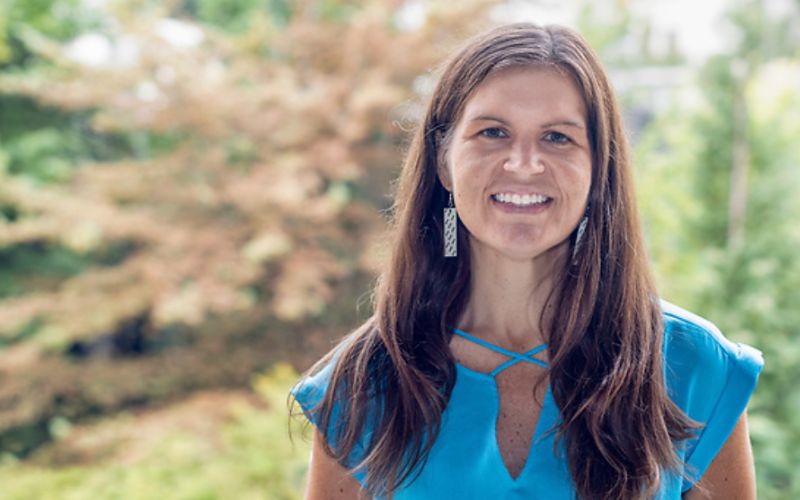
- Details
- By Native News Online Staff
Dr. Natalie Welch (Cherokee) is the new executive director of Rise Above, a nonprofit in Seattle dedicated to empowering Native youth.
"We couldn't be more excited to welcome Dr. Welch to our growing team," said Jaci McCormack, CEO and founder of Rise Above, in a press release. "Her expertise, knowledge, and compassion will undoubtedly help us inspire even more kids."
With over a decade of professional experience in marketing and education, Welch earned her MBA from the University of Central Florida and her doctorate degree from the University of Tennessee, focusing her dissertation on Native American athletes' contributions to their communities.
From the Qualla Boundry in Cherokee, Welch is an enrolled member of the Eastern Band of Cherokee Indians. Before relocating to Seattle, she played a pivotal role in developing a sport management program at Linfield University in McMinnville, Oregon. Welch is also an active volunteer, coaching for Girls on the Run, a nonprofit that supports the development of young girls.
In her new role as executive director, Welch will oversee Rise Above’s community services, events, and collaborations with similar nonprofit organizations. She will also continue her position as a professor at Seattle University, teaching in the MBA in Sport and Entertainment program.
"Dr. Welch's addition to our team will strengthen our mission of empowering Native kids," said Rise Above co-founder Brad Meyers in a press release. "With our projected growth, she will play a crucial role in expanding our impact."
Rise Above aims to grow by 25 percent annually over the next five years, doubling its staff and programming by 2025. To support this expansion, the organization is seeking talented professionals to develop new programs, secure funding, and manage strategic initiatives.
"In the coming years, we have the opportunity to extend our reach beyond the Pacific Northwest by fostering key relationships across Indian Country and local governments," Welch said in a press release. "I am deeply committed to serving our Native communities and inspiring our youth to pursue their dreams."
More Stories Like This
Hanging a Red Dress for Christmas: MMIP, Native Higher Education, and Hope for a Better New YearNative Students Can Win $5,000 Scholarship, International Distribution in Pendleton Design Contest
American Indian College Fund Raises Alarm Over Plan to Shift Native Programs Away From the Dept. of Education
MacKenzie Scott Foundation Gives $5 Million Contribution to Little Priest Tribal College
Tribal Leaders Push Back on Dismantling of U.S. Department of Education
Help us defend tribal sovereignty.
At Native News Online, our mission is rooted in telling the stories that strengthen sovereignty and uplift Indigenous voices — not just at year’s end, but every single day.
Because of your generosity last year, we were able to keep our reporters on the ground in tribal communities, at national gatherings and in the halls of Congress — covering the issues that matter most to Indian Country: sovereignty, culture, education, health and economic opportunity.
That support sustained us through a tough year in 2025. Now, as we look to the year ahead, we need your help right now to ensure warrior journalism remains strong — reporting that defends tribal sovereignty, amplifies Native truth, and holds power accountable.
 The stakes couldn't be higher. Your support keeps Native voices heard, Native stories told and Native sovereignty defended.
The stakes couldn't be higher. Your support keeps Native voices heard, Native stories told and Native sovereignty defended.
Stand with Warrior Journalism today.
Levi Rickert (Potawatomi), Editor & Publisher

